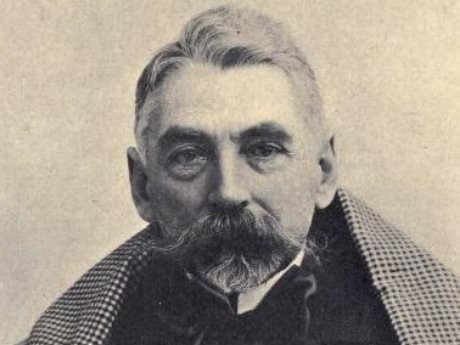Tributes
Tribute to the Greatest Symbolist Ever

Of all poets associated with the symbolist movement, Stéphane Mallarmé is surely the most influential, most difficult, and most worth clinging to. As Louis Zukofsky wrote in his own gigantic all-encompassing poem "A":
and this
maybe not
too late
tribute to
once Stéphane Mallarmé [1]
Never too late, I think, for Mallarmé, and that goes for wherever he is read and goes, and we with him. So strange and so grand: every one of his statements about writing, reading, and being are remarkable in their understated peculiarity. Try this celebrated one, from a piece called "Crisis in Poetry":
I say: a flower! And…there arises musically, as the very idea and delicate, the one absent from every bouquet. [2]
Imagine dwelling on absence as the major criterion of flower-ness, responsible for its essence. Just the opposite of that poetry of presence to which we are so accustomed now, in the work of Yves Bonnefoy, the greatest living French poet. And yet somehow those contraries meet in the realm of poetic suggestion, on the other side of rationality, which is itself the major retarding factor for the imagination. Mallarmé is, above all, the advocate of (and in some strong sense, the hero of ) imagination.
Now I am looking, as I often do, at the amazing photograph by Degas of Mallarmé and Renoir, with the poet's wife and daughter reflected in the mirror behind Renoir's head. Degas's face is dazzled out by the flash of the camera, while Mallarmé has his hands in his pockets and is looking down at the painter, who is looking at us directly, if somewhat on the slant. Why does this picture say so much? Perhaps it's the poetry of the pose, perhaps the hiddenness of the hands, or then the reflection about the whole thing. Or then the dazzle. Most probably, the way it all works together, in a kind of sumptuous display of gaze and glass.
But back to Mallarmé's own imagination about imagination: his poetry makes and stages its own scene, as does his prose. His super-modernist statements do more than linger in the intelligence: they make the mind work differently: "My work was created only by elimination," Mallarmé claims in a letter of 1867[3]. That I read as the opposite of what you might think: just as it would seem ultra-negative, it suggests some pure vitalism. It reminds you of a sculptor pulling out the statue from the marble: chipping away at what was not the statue. Obliqueness, distanciation – but above all, a kind of ultimate statement unarguable with, about the action and the act of transcribing self-completion, on poetry's own self-stage:
"But the Act accomplishes itself." [4]
[1] Stéphane Mallarmé, Selected Poetry and Prose, ed. Mary Ann Caws. New Directions, 1982
[2] Ibid, p. 76
[3] Ibid, p. 88, to Eugène Lefébure.
[4] Ibid., p. 99.


